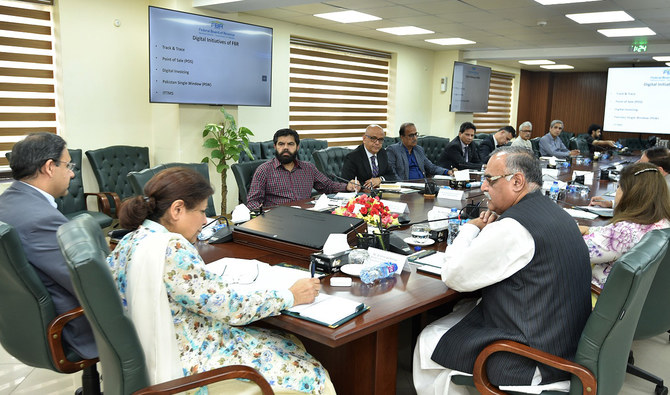ISLAMABAD: Dr. Shamshad Akhtar, Pakistan’s caretaker finance minister, mentioned encouraging signs of economic recovery during a news conference on Friday, citing a reduction in inflationary pressures and increased activity in the agricultural, industrial and service sectors.
Akhtar’s statement comes just months after Pakistan averted a sovereign debt default by securing a short-term $3 billion loan from the International Monetary Fund (IMF) amid declining foreign exchange reserves and a rapidly depreciating national currency.
The country’s caretaker administration, led by Prime Minister Anwaar-ul-Haq Kakar, launched a massive crackdown on individuals involved in smuggling and hoarding essential commodities upon assuming power in August, which led to a reduction in their prices in the market.
The declining trend of the Pakistani rupee against the US dollar was also curtailed after the government targeted the currency black market within the country.
“The caretaker government has inherited plenty of challenges, but we are not afraid of them and making efforts to tackle with them one after another,” she told a media briefing in the federal capital.
“There are some signs of economic recovery, even if it is just starting,” she continued. “On the inflation side, the CPI is in on a decline from May figures of over 38 percent to 27.2 percent now. This is a very important indicator that shows we have come out of certain difficulties, and we hope that price stability will improve as we go forward.”
The minister noted the country’s productive sectors, such as agriculture, had also gained pace, adding that economic figures also indicated recovery in the cement and other industries.
She said the macroeconomic indicators of the economy were showing improvement while describing the service sector as “vibrant.”
“We are trying to control the expenditures and enhance our revenues,” she added. “It is only through this that we can bring betterment in the situation.”
Akhtar noted the central bank had not increased the interest rate during its recent monetary policy announcement while hoping the decision would make the industrial sector prosper.
She also pointed out that Pakistan’s reserves were stable and the government was not focusing on bringing remittances through official banking channels.
“The government has rolled up its sleeves and is actually working,” she said.












